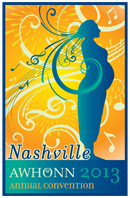Overcoming Barriers to Implementing the International Code of Marketing of Breast Milk Substitutes- The Rosebud Experience
Title: Overcoming Barriers to Implementing the International Code of Marketing of Breast Milk Substitutes- The Rosebud Experience
- Identify violations of the International Code of Marketing of Breastmilk Substitutes
- Describe strategies to implement the code successfully
- Analyze the detrimental effects that code violations have on breastfeeding protection
Proposed change: The code was officially endorsed by WHO and UNICEF 1981 as an official stance against the unethical marketing and promotion of breast milk substitutes. However, within the United States, no formal legislation exist that requires compliance with the code, and violations of the code that inhibit breastfeeding initiation, duration and exclusivity occur every day.Courageously, the staff and providers at the Rosebud PHS Indian Hospital (Rosebud) have taken a unique stand against unethical marketing practices within their facility and have overcome many barriers to implementing the code.
Implementation, outcomes and evaluation: Rosebud has been successful at implementing the code in its entirety within their facility to include exclusion of acquiring artificial substances and infant feeding materials as gifts, creating a commercial free patient education curriculum, as well as educating the entire hospital staff about their roles and responsibilities related to protection of breastfeeding and compliance with the code
Implications for nursing practice: This poster will highlight successful strategies used to overcome barriers of code implementation and creating an environment where the protection of breastfeeding is priority. These strategies include removal of non-commercialized patient gift packs, acquisition of feeding supplies and artificial substances at fair market value, and education and motivation of staff members about code compliance. Through the implementation of this code, breastfeeding initiation and exclusivity rates have risen significantly at Rosebud. Therefore implementation of the code is an evidence based paradigm for hospitals all over the world.
Keywords: Code, breastfeeding, Baby Friendly Hospital Initiative

